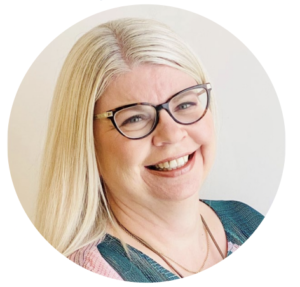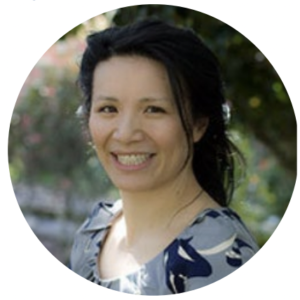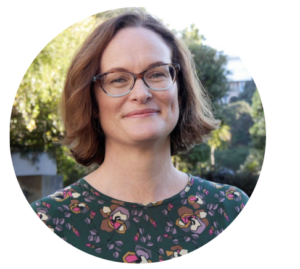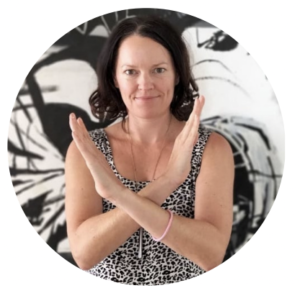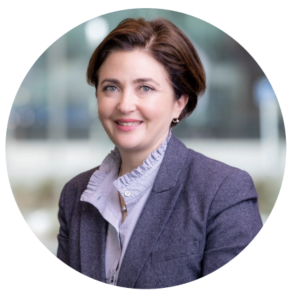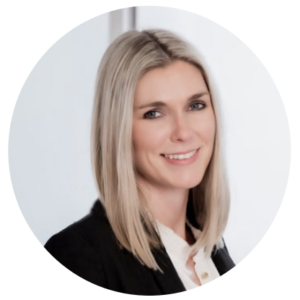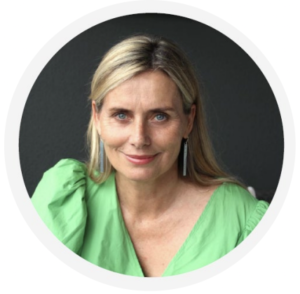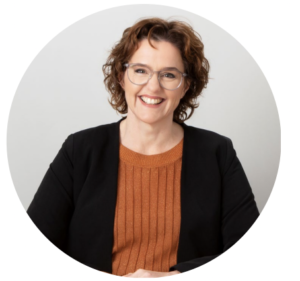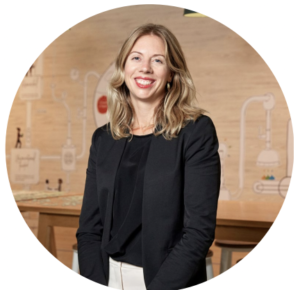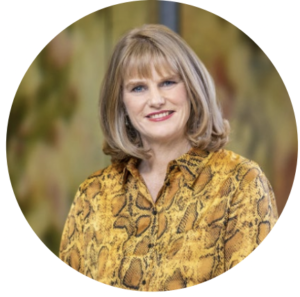As we mark the middle of the year, we’re proud to announce eleven incredible wāhine into the Global Women community. From healthcare to tech, consultancy to academia and many incredible industries in-between, our new members cover a range of fields as diverse as the communities they represent.
Please join us in warmly welcoming our new Members, and discover what their aspirations are for the women of Āotearoa New Zealand:
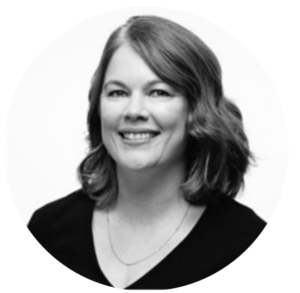
Chief Executive & Managing Director, Acumen NZ
My aspiration for the women of Āotearoa is for us to be recognised as world leaders in terms of equity and inclusion so we inspire change across the world. I want opportunities to be available regardless of gender, ethnicity, age or physical abilities and that our leaders reflect our society. I want us to do better. I want to be part of a bigger movement like Global Women and be a change agent.
“For us to be recognised as world leaders in terms of equity and inclusion so we inspire change across the world.”
General Manager, Integral Diagnostics
It is my aspiration for the Women of Āotearoa to have the confidence to understand their value and their worth. Too many times I hear women say, ‘I’m just a…’ and not feel their opinion and contributions have equal merit. I’m thrilled to see more younger women at the start of their careers having a higher level of self-confidence and belief, and not accepting status quo and pushing for more. It’s my aspiration that we reach a point where women are appointed into senior positions based on their value, and not to fill a quota or tick a gender diversity box. As a mother of a teenage boy, it is great to see generational change is starting to occur. My son talks about not noticing a person’s gender, race or orientation, people are just seen as people with contributions to make. This does give me hope that the aspiration of true equality for women of Āotearoa will be achieved sooner rather than later.
“It’s my aspiration that we reach a point where women are appointed into senior positions based on their value, and not to fill a quota or tick a gender diversity box.”
Urologist, University of Auckland
My aspirations for women in New Zealand are for women to have fewer barriers to full participation in all aspects of society. Specific to my role as a healthcare professional, I would like to advocate for women to be “heard” and for the healthcare system to be better enabled for women’s health needs. 11 My work with mesh-injured women (>250 women) and participation in the restorative justice process has allowed me to work closely with consumers in co-design and patient advocacy. The overwhelming themes of the restorative justice process were not being listened to and not being believed by medical professionals.
This is a reflection of the training and culture of medical practice rather than individual deficit in most cases. Historically most medical research was performed on male cohorts with extrapolation to women, as cited in the Guardian recently. As female medical professionals there are also significant barriers to participation. A 2019 study by Dr Charlotte Chambers, from the Association of Salaried Medical Specialists, described key points of : “limits on their opportunities extra mental load because medicine assumes primacy over doctors’ lives and has low tolerance for personal or domestic circumstances, and subtle inequities in interactions with colleagues and patients.” The barriers to leadership are even higher with a 2020 American medical association study showing that “ccording to the American Medical Association, “women account for just 3% of health care CMOs, 6% of department chairs, and 9% of division chiefs.”
In New Zealand, a recent NZ herald survey shows significant under-representation of women in surgical specialties. In my specialty, urology, women make up 17% of the NZ workforce. Recently my mentee (who is now a consultant surgeon) expressed a feeling of “not belonging” despite now being 14 years into our specialty. My work with the ministry of health and consumer groups has involved significant advocacy for patient safety and improving the experience of women in the pelvic floor surgery space. However there has been significant resistance to change within the medical profession and this highlights the difficulties that women face in healthcare, whether as consumers or professionals. By participating in leadership positions on the surgical mesh roundtable and credentialing committees with the ministry of health and within my district health board, as chair of robotic surgery credentialing, I hope to provide a role model and give assistance to other women to enter these spaces. Ultimately diversity in this workforce will provide better patient outcomes and experience.
“For women to have fewer barriers to full participation in all aspects of society… I would like to advocate for women to be “heard” and for the healthcare system to be better enabled for women’s health needs.”
Secretary for Women and Chief Executive, Ministry for Women
My vision for Āotearoa is one where all New Zealanders can live the lives they aspire to. Where we can make the contribution in all spheres of life be it education and school, sport and recreation, cultural, and professional endeavours – that we want to make. Where access and spaces are open to and for all. Where we are encouraged to do the things that we want to try, are passionate about, or we dream about regardless of being a girl or a boy, a woman or a man. That girls and women achieve and are celebrated for their achievements, and that this is not seen as special or exceptional because of their gender. Where we don’t need to keep making the case for gender equality – as there is shared commitment to this principle.
One special vision is for wāhine Māori and that they are recognised and valued for who they are and they are deciding where they see their spaces and roles within their whānau and communities, as well as overall in Āotearoa. 14 My vision is one where we do not treat women as one homogenous group. There is huge diversity: ethnicity, age, geography, thought, faith, and lived experience. This just touches the surface of aspects of diversity of women. Diversity adds to the richness, the depth, and the value that women hold. To create the right conditions for women, we need to look at the big picture, while not losing sight of the reality for different groups of women. For my aspirations to be realised, we need to see girls and women leading and participating in all aspects of our society. We need to support women and girls to live the lives they aspire to and acknowledge and celebrate them in all they achieve
“Where we don’t need to keep making the case for gender equality – as there is shared commitment to this principle. One special vision is for wāhine Māori and that they are recognised and valued for who they are…”
Associate Professor, University of Auckland
My aspirations are for equity in health and healthcare for the women of Āotearoa. The lack of recognition of sex and gender differences in biology and medicine is an issue that research is only beginning to rectify. The more we understand about how sex and gender affect health, the more we can improve health and well-being for everyone. I echo the goals described in ‘A Case for a National Women’s Health Strategy in Āotearoa New Zealand’ by Women’s Health Action around developing a women’s health strategy to guide health services.
Especially that we need to work towards health equity between women and men and a health system that is responsive to the needs of all women. This means effecting change across all levels of health and medicine, from research to education to clinical care. Both sex and gender can influence health and there is very little awareness that a sex (and gender) gap still exists around healthcare. Another aspiration I have is to improve equity and support the progression of women in STEM (Science, Technology, Engineering and Mathematics) fields. While numbers of women at lower levels in STEM areas is increasing, there is still a lack of representation in more senior leadership roles and on company boards.
“My aspirations are for equity in health and healthcare for the women of Āotearoa [and] to improve equity and support the progression of women in STEM.”
General Manager Corporate Services & General Counsel, Auckland International Airport
My aspirations for the Women of Āotearoa New Zealand is to build the pipeline of female talent into areas outside of where women normally operate. We can do this through programmes encouraging females at an early stage of their education into STEM subjects and other male dominated areas as well as providing them with role models to aspire to and demonstrate what is possible. This needs to be into all schools and across all ethnicities so we develop an inclusive and diverse talent pool. Corporate New Zealand also needs to change their views and practices on the criteria for recruitment and challenge themselves on prior thinking to create the pull through of this talent. By focusing here we will create even broader leadership opportunities for women and the breadth needed to have representation and influence across all industries. A win for women and a win for Āotearoa.
“To build the pipeline of female talent into areas outside of where women normally operate… through programmes encouraging females at an early stage of their education into STEM subjects and other male dominated areas as well as providing them with role models to aspire to and demonstrate what is possible”
Partner, Calibre Partners
Natalie spearheaded the Women In Restructuring and Insolvency (“WIRI”) network across NZ circa 5 years with a bunch of like-minded industry colleagues and is currently on the Board of their industry organisation, RITANZ. Natalie is also passionate about volunteering and is a trustee on the volunteering Auckland board.
Like any outstanding achiever in our field, Natalie’s success has always been measured by her outcomes. What sets her apart, though, is her focus on people and relationships.
Natalie’s ability to build rapport with a wide range of stakeholders goes a long way towards achieving successful results for clients. Personable and hands on, Natalie has sound business instincts sharpened by working on major restructuring assignments for over 10 years.
Her track record of helping develop and successfully implement pragmatic responses to complex problems attests to Natalie’s commercial mindset and client focus.
Natalie’s background is as a Banking and Finance Professional.
Like any outstanding achiever in our field, Natalie’s success has always been measured by her outcomes. What sets her apart, though, is her focus on people and relationships.
Founder and CEO, AMO GROUP & Toro Studios
I am a mum to a blended family of 5 boys, 2 dogs, and a gorgeous mokopuna. I don’t exercise enough, and I’ve been making marshmallow easter eggs for thirty years. My vision is to participate in a fair, equitable and unified country. A 30b dollar creative industry for Āotearoa supported by local creative and tech talent investment will drive national, social and community prosperity. One life changed in a whānau will change a generation.
“My vision is to participate in a fair, equitable and unified country. A 30b dollar creative industry for Āotearoa supported by local creative and tech talent investment will drive national, social and community prosperity.”
Executive Director, MartinJenkins
Women of Āotearoa New Zealand should thrive. We are a small diverse country, and our ability to effect change is great. Yet we continue to face systemic barriers to making a full contribution that are related to our gender, gender identity, our geography and for some of us, ethnicity. Achieving equity requires us to examine existing power structures and dismantle them in a systematic manner. It means prioritising the barriers that are being experienced and focusing on those that will provide the greatest benefit. Access to education, access to finance, removal of bias, supporting equal parenting responsibilities, access to justice, and the long hard push against patriarchal norms.
I have committed my entire professional career to addressing some of the most wicked societal problems. From climate change to the employment outcomes of young Pasifika women in South Auckland, to the exploitation of migrant workers, to deconstructing the power structures of colonialism and re-designing co-governance arrangements with mana whenua – finding my own way as Tāngata Tiriti. By joining Global Women, I am connecting with a community of strong mana wāhine and bringing analytical rigour and advocacy skills to some of the most challenging issues faced by women in New Zealand.
“Achieving equity requires us to examine existing power structures and dismantle them in a systematic manner. It means prioritising the barriers that are being experienced and focusing on those that will provide the greatest benefit.”
Managing Director — New Zealand, Aurecon
I am incredibly passionate about getting more women and girls to choose STEM careers and to do this we need to start at the beginning and engage with schools and universities to build a more balanced early pipeline. There is also the old saying “you can’t be what you can’t see”, therefore it is hugely important to have visible role models where girls can look to and think “hey, that looks interesting — I can do that too”. Being a visible role model as a female leader in what remains very much a male-dominated industry, particular in senior leadership positions, means that I have a responsibility to leverage my position to open doors, not just for women, but for all groups who have traditionally been under represented in leadership positions, including Māori and Pasifika and LGBTI+.
My aspiration is that we continue to lead the change to create a truly diverse, resilient, innovative, and inclusive infrastructure industry, which is attractive to and retains talent, and will make a positive contribution to the environment and society. Everyone deserves the opportunity to have a rewarding career, where they have a sense of belonging, feel valued and can contribute, with equal treatment and access to opportunities.
“My aspiration is that we continue to lead the change to create a truly diverse, resilient, innovative, and inclusive infrastructure industry, which is attractive to and retains talent, and will make a positive contribution to the environment and society.”
Partner — Reward | People Advisory Services, EY
As one of three daughters, my immigrant parents brought us up to believe that we were capable of anything we set our minds to, no matter what the endeavour was. Drawing on that ethos, my aspiration for the women of Āotearoa is that we create a society where there are no limits to what women can achieve — regardless of background or circumstance. I want to be able to use my skills to support other women, to break down barriers and provide opportunities. In my work life, my role includes helping organisations understand and address the gender pay gap and improve the transparency around pay.
Having started extending that practice into work on ethnicity pay gaps, I hope that understanding and tackling both the size and root causes of pay inequity at an organisation level will help us to acknowledge the significant contribution women make to NZ’s economy. We have the opportunity, as leaders, to support other women to be whatever their definition of success is. By supporting all women to achieve their full capabilities, ensuring their remuneration is equitable, no matter their role and acknowledging their contributions to the economy (both paid and unpaid), we can make Āotearoa a better place.
“We have the opportunity, as leaders, to support other women to be whatever their definition of success is. By supporting all women to achieve their full capabilities, ensuring their remuneration is equitable, no matter their role and acknowledging their contributions to the economy (both paid and unpaid), we can make Āotearoa a better place.”

